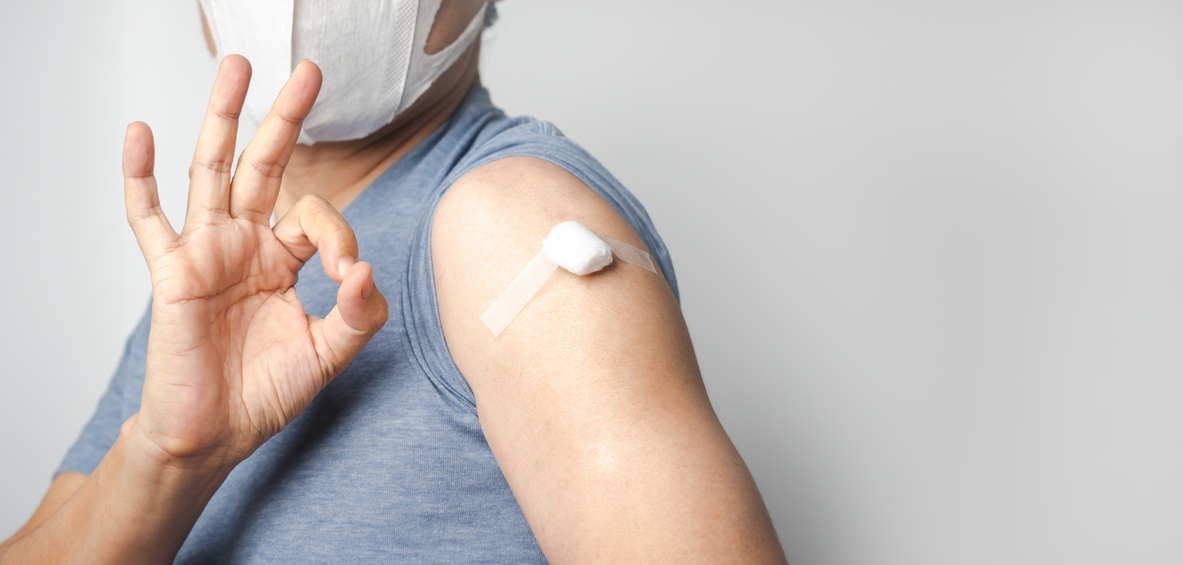Vaginal infections in women are very common. Most women have at least one episode of vaginal infection or vaginitis during their lives, making it the most common gynaecological diagnosis in primary care.
Studies have shown a negative effect on quality of life in women with vaginal infection, also known as vaginitis. Some women express anxiety, shame, and concerns about hygiene, particularly in those with recurrent symptoms.
Let us understand more about vaginal infections, douching, and the myths and facts surrounding it.

What is vaginal infection?
Vaginal infection or vaginitis is defined as any condition with symptoms of abnormal vaginal discharge, odour, irritation, itching, or burning.
What are the causes of vaginal infection?
The vagina creates its own environment and maintains a balance among the normal bacteria found there and the hormonal changes in a woman's body. Some vaginal discharge is quite common and normal for women of childbearing age.
Normally, the cervical glands produce a clear mucous secretion that drains downward, mixing with bacteria, discarded vaginal cells, and Bartholin gland secretions at the opening of the vagina. These substances may (depending on how much mucous there is)
turn the mucous a whitish colour, and the discharge turns yellowish when exposed to air.
There are times throughout the menstrual cycle when the cervical glands produce more mucous, depending on the amount of oestrogen produced. This is normal.
The causes of vaginal infections can be divided into infective and non-infective causes.
Infective causes
- Bacterial vaginosis is the most common cause of vaginal infections for women between the age of 15 to 44
- Vulvovaginal candidiasis (or candida) is a yeast infection caused by overgrowth of yeasts where 70% to 90% of cases are secondary to Candida albicans
- Chlamydia trachomatis infection, which is an STI (sexually transmitted infection)
- Neisseria gonorrhoea infection that often spreads through sex
- Trichomoniasis, a sexually transmitted infection caused by a flagellated protozoan, Trichomonas vaginalis
- Viral vaginitis is caused by viruses such as Herpes Simplex Virus (HSV), and Human Papillomavirus (HPV)
Non-infective causes
Non-infective causes are physiological such as cervical ectropion, cervical polyp, retained foreign bodies, malignancies, atrophic vaginitis.
What are the symptoms of vaginal infection?
The following are common symptoms:
- Vaginal pain
- Vaginal itching
- Vaginal burning
- A foul odour from your vagina
- Painful urination
- Any vaginal discharge that is different from your normal discharges such as thick and white, cottage cheese-like, or yellowish green.
If you suspect you have a vaginal infection, contact your doctor for diagnosis and treatment.
Do not try to wash it away with a douche. Never douche before you visit your doctor.
What women should know about vaginal douches
A vaginal douche is the process of rinsing or cleaning the vagina by forcing water or another solution into the vaginal cavity to flush away vaginal discharge or other contents.
Vaginal douches are available over the counter and are made in a variety of fragrances by several manufacturers; they are also available by prescription to treat certain conditions or prepare for certain procedures.
Why do some women use vaginal douches?
Women choose to use douches for a variety of reasons. Many of these are related to myths or misinformation about what vaginal douches can do.
A woman may use a douche to:
- Rinse away any remaining menstrual blood at the end of the monthly period. This is not necessary since the body will clean itself.
- Avoid pregnancy or sexually transmitted diseases following sexual intercourse. However, douching is neither a contraceptive nor a preventative measure against STDs or other infections. It can, in fact, increase the risk of developing an infection.
- Reduce vaginal odours. Women who have an unusual vaginal odour need to see their clinician for proper diagnosis since extreme odour may be a sign of an infection or other serious problems, using a douche may only complicate the condition.
- Feel "cleaner." The vagina cleans itself so vaginal douches are not necessary for hygiene.
Is douching healthy?
Regular vaginal douching changes the delicate chemical balance of the vagina and can make a woman more susceptible to infections.
Douching can introduce new bacteria into the vagina which can spread up through the cervix, uterus, and fallopian tubes, leading to Pelvic Inflammatory Disease (PID). Women who douche regularly experience more vaginal irritations and infections such as
bacterial vaginosis, and an increased number of sexually transmitted diseases.
Furthermore, regular users of vaginal douches face a significantly higher risk of developing Pelvic Inflammatory Disease (PID) - a chronic condition that can lead to infertility, or even death, if left untreated. Bacterial vaginosis and PID can have serious
adverse effects on pregnancy including infections in the baby, labour problems, and preterm delivery.
It has been reported that women who douche more than once a week have lesser chances of getting pregnant as compared to those who do not. Additionally, douching may increase the risk of complications like ectopic pregnancies. Furthermore, over-douching
has also been linked to increased chances of cervical cancer.
Patients with bacterial vaginosis should avoid vaginal douching, use of shower gel and antiseptic agents or shampoo. Patients with vulvovaginal candidiasis should avoid tight fitting synthetic clothes and use of vaginal douching.
Therefore, douching is no longer recommended as a safe or healthy way to routinely clean the vagina. The only safe and healthy way to clean the vagina is to let the vagina clean itself.
How does the vagina clean itself?
The vagina cleans itself naturally with its own mucous secretions. When bathing or showering use warm water and gentle unscented soap to cleanse the outer areas of the vagina. Feminine hygiene products such as soaps, powders, and sprays are not necessary
and may lead to irritation of sensitive tissues.












-yeoh-chee-lima51b01d7-09b0-4e11-a0a5-ce3c9ea5de79.jpg?sfvrsn=615d491f_6)

